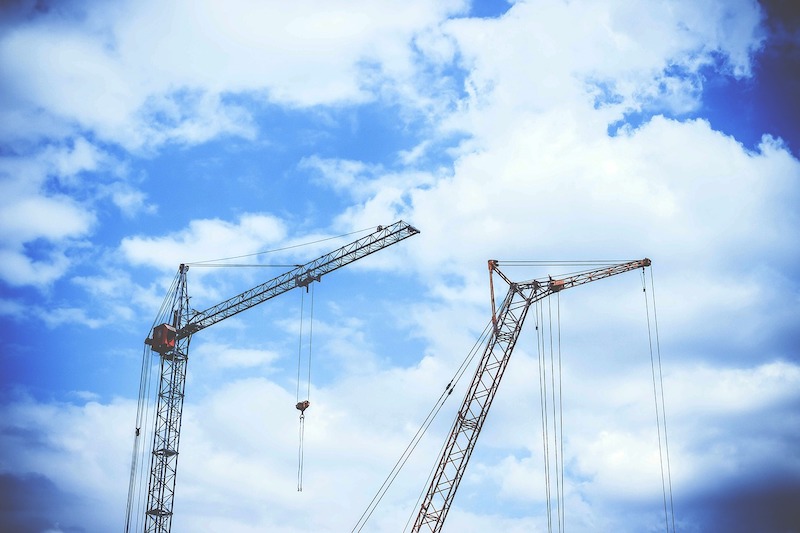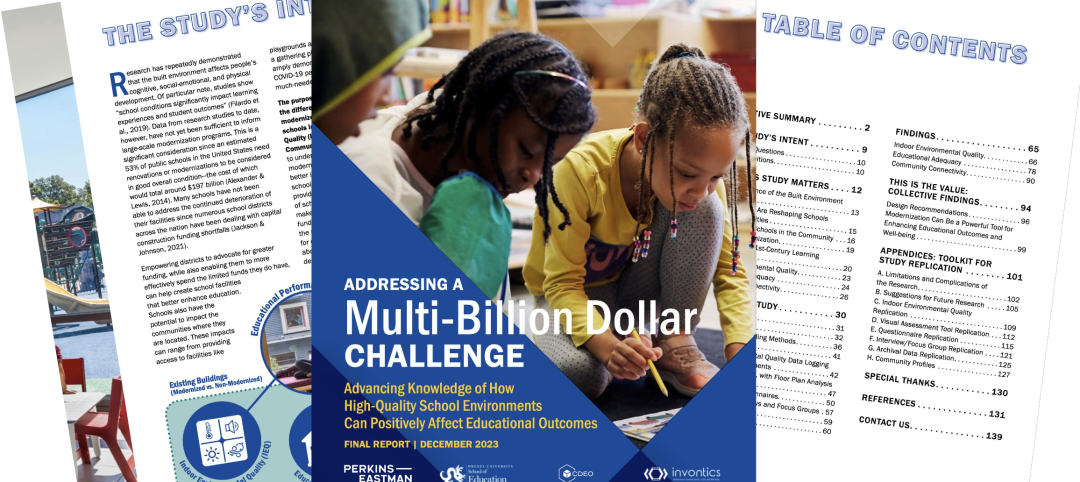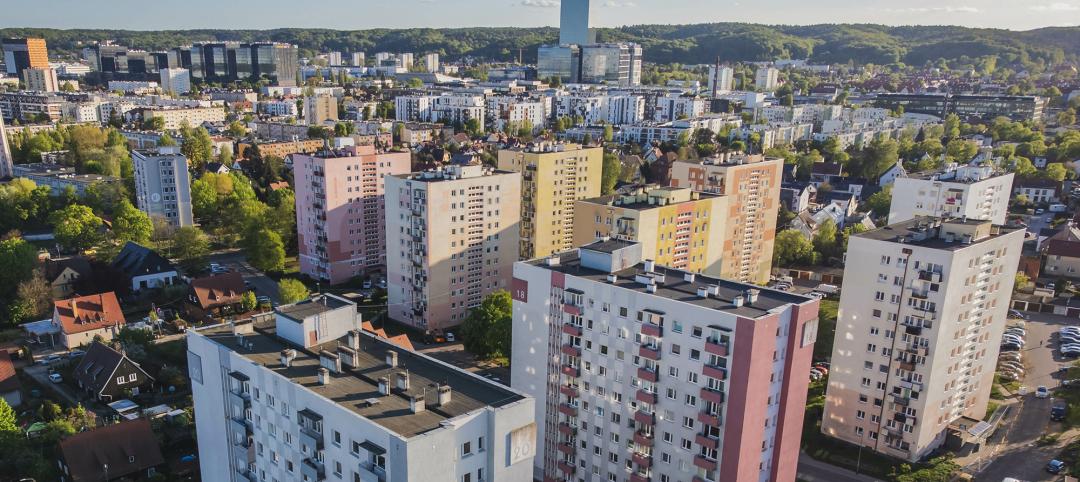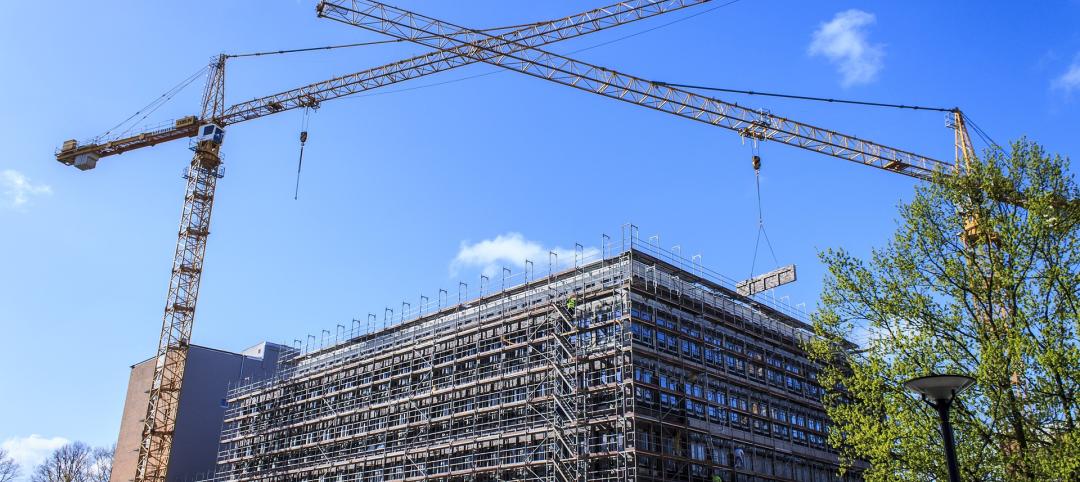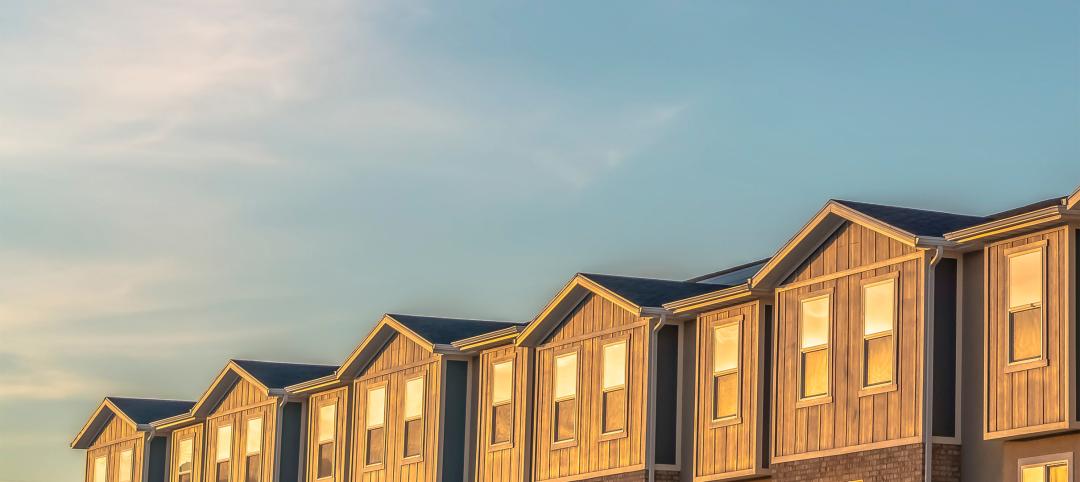Construction spending rallied in January as private nonresidential construction increased for the first time in seven months, according to an analysis of new federal construction spending data by the Associated General Contractors of America. Association officials said that nonresidential construction spending remains below pre-pandemic levels and that rising materials prices and proposed labor law changes threaten the sector’s recovery.
“Despite a modest upturn in January, spending on private nonresidential construction remained at the second-lowest level in more than three years and was 10% below the January 2020 spending rate,” said Ken Simonson, the association’s chief economist. “All 11 of the private nonresidential categories in the government report were down, compared to a year earlier.”
Construction spending in January totaled $1.52 trillion at a seasonally adjusted annual rate, an increase of 1.7% from the pace in December and 5.8% higher than in January 2020. Residential construction jumped 2.5% for the month and 21% year-over-year. Meanwhile, combined private and public nonresidential spending climbed 0.9% from December but remained 5.0% below the year-ago level.
Private nonresidential construction spending rose 0.4% from December to January, although declines continued for the three largest components. The largest private nonresidential segment, power construction, fell 10.0% year-over-year and 0.8% from December to January. Among the other large private nonresidential project types, commercial construction—comprising retail, warehouse and farm structures—slumped 8.3% year-over-year and 1.8% for the month. Office construction decreased 4.4% year-over-year and 0.2% in January. Manufacturing construction tumbled 14.7% from a year earlier despite a 4.9% pickup in January.
Public construction spending increased 2.9% year-over-year and 1.7% for the month. Results were mixed among the largest segments. Highway and street construction rose 6.5% from a year earlier and 5.8% for the month, possibly reflecting unseasonably mild weather conditions in January 2021 compared to December and January 2020. Educational construction increased 0.9% year-over-year but dipped 0.1% in January. Spending on transportation facilities declined 0.6% for the year and 1.0% in January.
Private residential construction spending increased for the eighth-straight month, jumping 21% year-over-year percent and 2.5% in January. Single-family homebuilding leaped 24.2% compared to January 2020 and 3.0% for the month. Multifamily construction spending climbed 16.9% for the year and 0.7% for the month.
Association officials said that many construction firms report they are being squeezed by rising materials prices, particularly for lumber and steel, yet are having a hard time increasing what they charge to complete projects. They urged the Biden administration to explore ways to boost domestic supply and eliminate trade barriers for those key materials. They also cautioned that the proposed PRO Act and its significant changes to current labor laws could undermine labor harmony at a time when the industry is struggling to rebound.
“Contractors are getting caught between rising materials prices and stagnant bid levels,” said Stephen E. Sandherr, the association’s chief executive officer. “Add to that the possible threat of a new era of labor unrest, and many contractors are worried that the recovery will end before it really starts.”
Related Stories
Retail Centers | Apr 4, 2024
Retail design trends: Consumers are looking for wellness in where they shop
Consumers are making lifestyle choices with wellness in mind, which ignites in them a feeling of purpose and a sense of motivation. That’s the conclusion that the architecture and design firm MG2 draws from a survey of 1,182 U.S. adult consumers the firm conducted last December about retail design and what consumers want in healthier shopping experiences.
Market Data | Apr 1, 2024
Nonresidential construction spending dips 1.0% in February, reaches $1.179 trillion
National nonresidential construction spending declined 1.0% in February, according to an Associated Builders and Contractors analysis of data published today by the U.S. Census Bureau. On a seasonally adjusted annualized basis, nonresidential spending totaled $1.179 trillion.
Market Data | Mar 26, 2024
Architecture firm billings see modest easing in February
Architecture firm billings continued to decline in February, with an AIA/Deltek Architecture Billings Index (ABI) score of 49.5 for the month. However, February’s score marks the most modest easing in billings since July 2023 and suggests that the recent slowdown may be receding.
K-12 Schools | Mar 18, 2024
New study shows connections between K-12 school modernizations, improved test scores, graduation rates
Conducted by Drexel University in conjunction with Perkins Eastman, the research study reveals K-12 school modernizations significantly impact key educational indicators, including test scores, graduation rates, and enrollment over time.
MFPRO+ News | Mar 16, 2024
Multifamily rents stable heading into spring 2024
National asking multifamily rents posted their first increase in over seven months in February. The average U.S. asking rent rose $1 to $1,713 in February 2024, up 0.6% year-over-year.
Market Data | Mar 14, 2024
Download BD+C's March 2024 Market Intelligence Report
U.S. construction spending on buildings-related work rose 1.4% in January, but project teams continue to face headwinds related to inflation, interest rates, and supply chain issues, according to Building Design+Construction's March 2024 Market Intelligence Report (free PDF download).
Contractors | Mar 12, 2024
The average U.S. contractor has 8.1 months worth of construction work in the pipeline, as of February 2024
Associated Builders and Contractors reported that its Construction Backlog Indicator declined to 8.1 months in February, according to an ABC member survey conducted Feb. 20 to March 5. The reading is down 1.1 months from February 2023.
Market Data | Mar 6, 2024
Nonresidential construction spending slips 0.4% in January
National nonresidential construction spending decreased 0.4% in January, according to an Associated Builders and Contractors analysis of data published today by the U.S. Census Bureau. On a seasonally adjusted annualized basis, nonresidential spending totaled $1.190 trillion.
Multifamily Housing | Mar 4, 2024
Single-family rentals continue to grow in BTR communities
Single-family rentals are continuing to grow in built-to-rent communities. Both rent and occupancy growth have been strong in recent months while remaining a financially viable option for renters.
MFPRO+ News | Mar 2, 2024
Job gains boost Yardi Matrix National Rent Forecast for 2024
Multifamily asking rents broke the five-month streak of sequential average declines in January, rising 0.07 percent, shows a new special report from Yardi Matrix.


